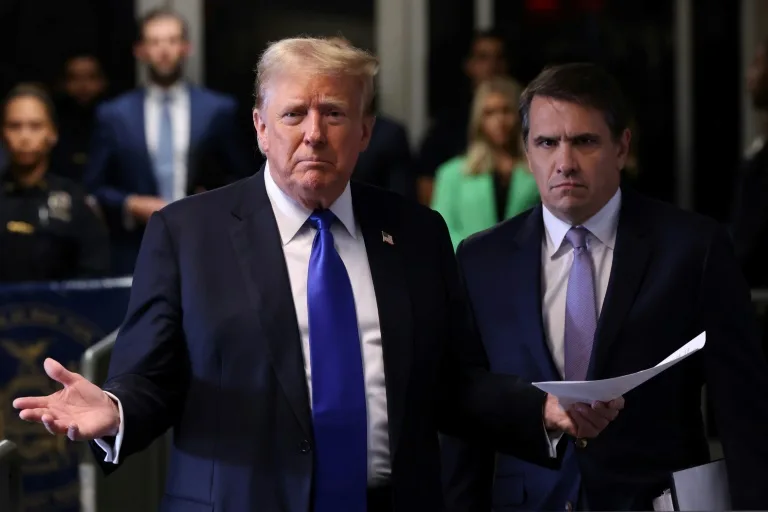
NEW YORK – A judge postponed Tuesday Donald Trump’s sentencing for covering up hush money payments until September 18, the first fallout of a Supreme Court ruling on presidential immunity, pushing it to after the Republican convention.
The United States’ top court ruled Monday that Trump enjoys some immunity from prosecution as a former president, a decision also set to delay his trial for conspiring to overturn the 2020 election.
Hours after the ruling was announced, Trump’s legal team said in a letter to the New York court that the immunity ruling vindicated Trump’s position that he should not be judged for his “official acts,” and reiterated his call for the conviction to be set aside.
The sentencing had been scheduled for July 11, days before the Republican National Convention on July 15 at which Trump is expected to be proclaimed the party’s nominee for the battle against President Joe Biden for the White House.
“The matter is adjourned to September 18, 2024, at 10 am for the imposition of sentence, if such is still necessary,” Judge Juan Merchan said in a court filing to allow time for consideration of the bombshell Supreme Court ruling.
Manhattan prosecutor Alvin Bragg had earlier said in a filing that he was not opposed to the delay, but that he believed the “defendant’s arguments to be without merit.”
The conviction in New York in May made Trump the first former US president ever convicted of a crime. He was found guilty on 34 counts of falsifying business records to cover up hush money payments over his alleged affair with an adult film star in the run-up to the 2016 election.
– Official vs unofficial acts –
Trump, in posts on Truth Social, welcomed the Supreme Court immunity ruling, calling it a “big win for our constitution and democracy.”
Biden warned Monday that the US Supreme Court’s landmark ruling sets a “dangerous precedent” that Trump would exploit if elected in November.
Facing four criminal cases, Trump has been doing everything in his power to delay the trials until after the election.
The conservative-dominated top court ruled that Trump — and all presidents — enjoy “absolute immunity” from criminal prosecution for “official acts” taken while in office, but can still face criminal penalties for “unofficial acts.”
Conservative Chief Justice John Roberts, in his majority opinion, said a president is “not above the law” but does have “absolute immunity” from criminal prosecution for official acts taken while in office.
“The president therefore may not be prosecuted for exercising his core constitutional powers,” Roberts said.
“As for a President’s unofficial acts, there is no immunity,” the chief justice added, sending the case back to a lower court to determine which of the charges facing Trump involve official or unofficial conduct.
KOIKI Media bringing the world 🌎 closer to your door step
